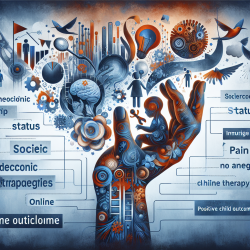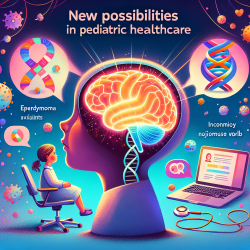Introduction
Substance misuse among parents is a critical issue affecting child welfare systems worldwide. The Enhancing Permanency in Children and Families (EPIC) program has been developed to address these challenges by using a multi-system approach. This blog explores the findings from a process evaluation of the EPIC program, highlighting key strategies and insights that can help practitioners improve outcomes for families affected by parental substance misuse.
Understanding the EPIC Program
The EPIC program employs four evidence-based practices to support families involved in the child welfare system due to parental substance misuse:
- Peer Recovery Support (PRS): Provides experiential connection and support to families.
- Family Treatment Drug Court (FTDC): Offers a supportive judicial environment to promote accountability and recovery.
- Medications for Opioid Use Disorder (MOUD): Facilitates stabilization and engagement in treatment.
- Nurturing Parent Program (NPP): Focuses on relational skill-building to improve parenting.
Key Findings from the Evaluation
The evaluation of the EPIC program identified several facilitators and barriers to its successful implementation:
- Strengths: PRS was a significant strength, providing valuable support and information to families. FTDC was effective in building positive relationships between clients and judges, enhancing accountability and support.
- Barriers: High turnover rates among PRS and the challenge of matching PRS to families were noted as significant barriers. Additionally, the availability of MOUD providers was limited, hindering access to necessary treatment.
- Engagement Challenges: Client attitudes towards court and the perceived redundancy of the NPP were identified as barriers to engagement.
Recommendations for Practitioners
Based on the findings, practitioners can enhance their approach by focusing on the following strategies:
- Enhancing PRS Recruitment and Retention: Efforts should be made to improve the recruitment and retention of PRS to ensure continuity of support for families.
- Reframing Client Perceptions: Educating clients about the supportive nature of FTDC and the benefits of engagement can help change perceptions and improve participation.
- Increasing Access to MOUD: Expanding the network of MOUD providers and addressing misconceptions about the treatment can facilitate better access and engagement.
Conclusion
The EPIC program demonstrates the potential of a coordinated, multi-system approach to improving outcomes for families affected by parental substance misuse. By addressing the identified barriers and leveraging the strengths of the program, practitioners can enhance their effectiveness and contribute to better permanency outcomes for children.
To read the original research paper, please follow this link: Promoting permanency in families with parental substance misuse: lessons from a process evaluation of a multi-system program.










